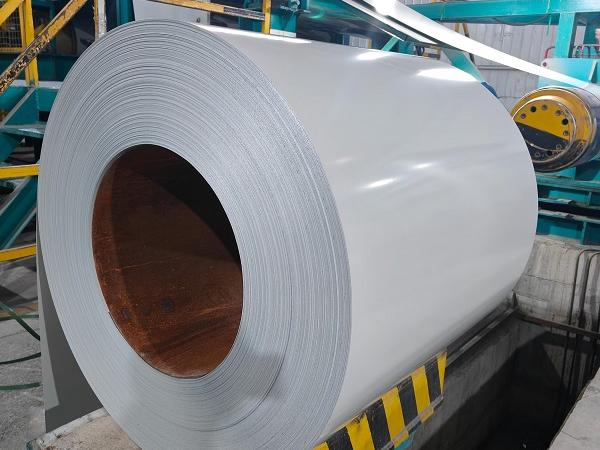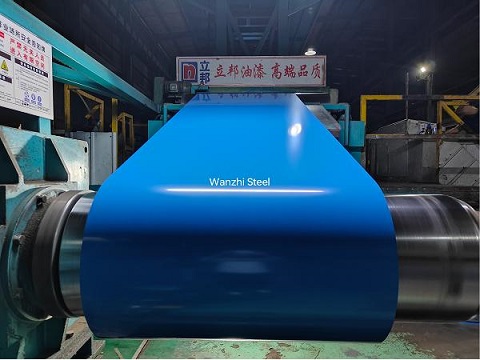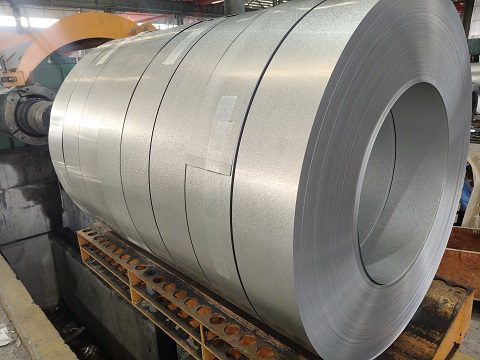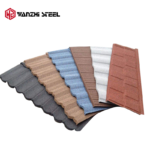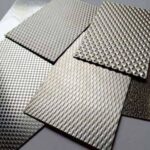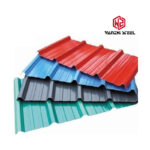стальная труба
Что такое стальная труба?
Стальная труба — это стальной материал с полым поперечным сечением, длина которого значительно больше его диаметра или окружности.
Трубка может использоваться не только для транспортировки жидкостей и порошкообразных твердых веществ, обмена тепловой энергией и производства механических деталей и контейнеров, но также является экономичным стальным материалом. Использование стальных труб для производства сеток строительных конструкций, столбов и механических опор может снизить вес, сэкономить 20-40% металла и реализовать заводское механизированное строительство. Использование стальных труб для производства автодорожных мостов может не только сэкономить сталь и упростить строительство, но и значительно сократить площадь защитного покрытия, экономя инвестиции и расходы на техническое обслуживание.
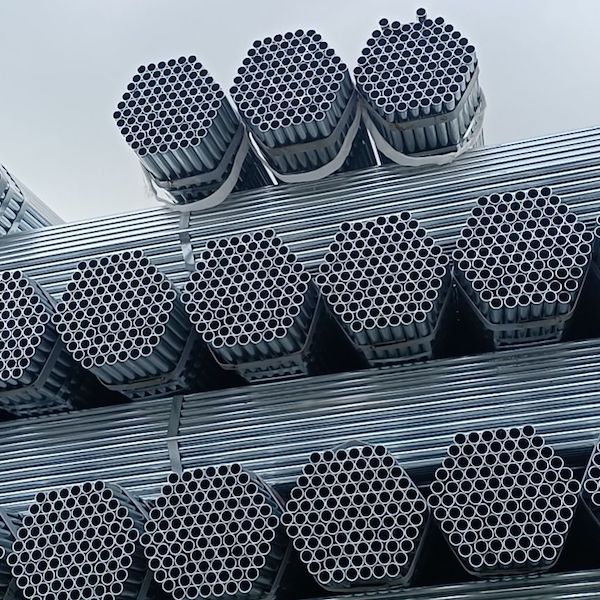
Stainless Steel Pipe
Production method of steel pipe
Steel pipes are divided into two production methods: seamless steel pipes and welded steel pipes.
The production process of seamless steel pipes is to pierce solid tubes or ingots into hollow rough tubes, and then roll them into steel pipes of the required size. Different perforation and tube rolling methods are used, which constitute different methods for producing seamless steel pipes. The production process of welded steel pipes is to bend tubes (steel plates or strips) into tubes, and then weld the gaps to form steel pipes. Due to different forming and welding methods, different methods for producing welded steel pipes are formed.
Seamless steel pipes are mainly produced by hot rolling. Extrusion is mainly used to produce low-plasticity high-alloy steel pipes or special-shaped steel pipes and composite metal pipes that are difficult to pierce. Cold rolling and cold drawing can further process hot-rolled pipes into small-diameter and thin-walled steel pipes. Welded steel pipes have simple process, high production efficiency, low cost, and a growing variety of products.
Classification of steel pipe
Steel pipe products have a wide variety of steel grades and specifications, and their performance requirements are also varied. All of these should be differentiated as user requirements or working conditions change. Usually, steel pipe products are classified according to cross-sectional shape, production method, pipe material, coating characteristics, etc.
Classification by production method
Steel pipes can be divided into two categories according to the production method: seamless steel pipes and welded steel pipes. Welded steel pipes are referred to as welded pipes.
1. Seamless steel pipes can be divided into hot-rolled seamless pipes, cold-drawn pipes, precision steel pipes, hot-expanded pipes, cold-spun pipes and extruded pipes according to the production method. Seamless steel pipes are made of high-quality carbon steel or alloy steel, and are divided into hot-rolled and cold-rolled (drawn).
2. Welded steel pipes are divided into furnace welded pipes, electric welded (resistance welded) pipes and automatic arc welded pipes due to their different welding processes. They are divided into straight seam welded pipes and spiral welded pipes due to their different welding forms. They are divided into round welded pipes and special-shaped (square, flat, etc.) welded pipes due to their end shapes.
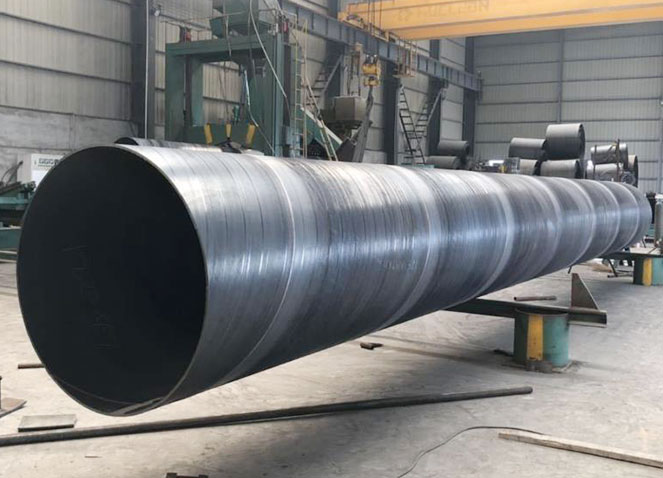
Large diameter welded pipe
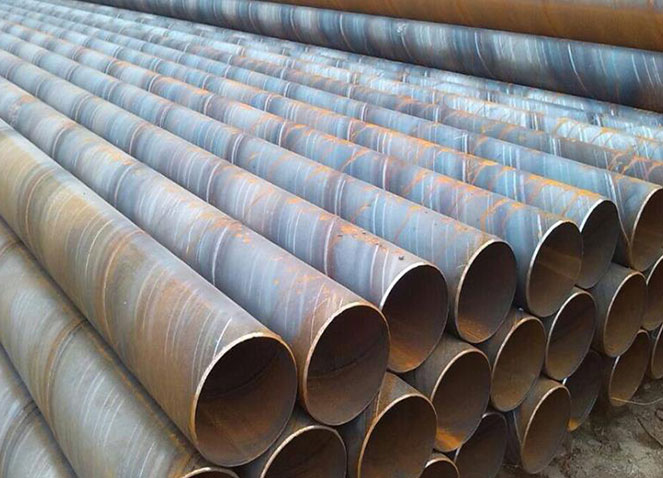
Spiral welded pipe
Welded steel pipes are made of steel plates rolled into a tube shape by welding with butt seams or spiral seams. In terms of manufacturing methods, they are divided into welded steel pipes for low-pressure fluid transportation, spiral seam electric welded steel pipes, direct rolled steel pipes, electric welded pipes, etc. Seamless steel pipes can be used for liquid and gas pressure pipelines and gas pipelines in various industries. Welded pipes can be used for water pipes, gas pipes, heating pipes, electrical pipes, etc.
Classification by material
Steel pipes can be divided into carbon pipes, alloy pipes, stainless steel pipes, etc. according to the material (i.e. steel type) of the pipe.
Carbon pipes can be divided into ordinary carbon steel pipes and high-quality carbon structural pipes.
Alloy pipes can be divided into low alloy pipes, alloy structural pipes, high alloy pipes, and high-strength pipes. Bearing pipes, heat-resistant and acid-resistant stainless pipes, precision alloy (such as Kovar) pipes, and high-temperature alloy pipes.
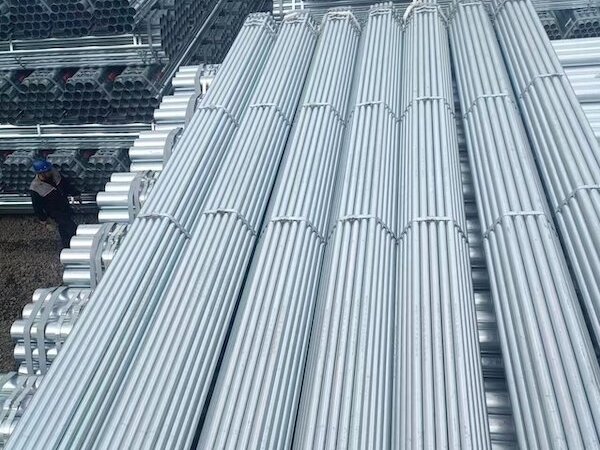
Seamless steel pipe
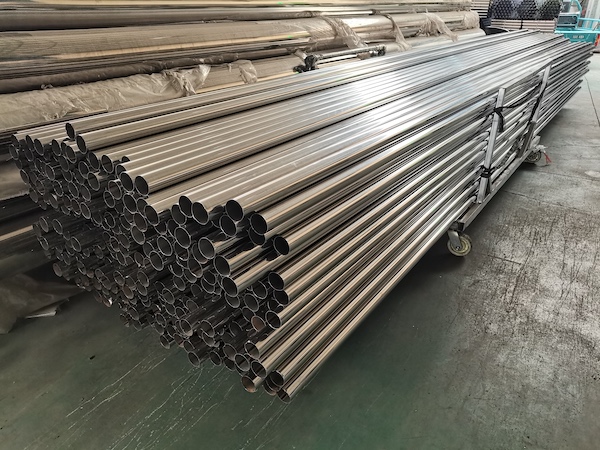
Stainless Steel Seamless Pipe
Classification by coating characteristics
Steel pipes can be divided into black pipes (uncoated) and coated pipes according to the surface coating characteristics.
Coated pipes include galvanized pipes, aluminum-coated pipes, chrome-coated pipes, aluminized pipes and other alloy-layer steel pipes.
Coated pipes include outer coating pipes, inner coating pipes, inner and outer coating pipes. Commonly used coatings include plastics, epoxy resins, coal tar epoxy resins and various glass-type anti-corrosion coating materials.
Galvanized pipes are further divided into: KBG pipes, JDG pipes, threaded pipes, etc.
Classification by cross-sectional shape
Steel pipes can be divided into round steel pipes and special-shaped steel pipes according to their cross-sectional shape.
Special-shaped steel pipes refer to various steel pipes with non-circular cross-sections. Among them, there are: square pipes, rectangular pipes, elliptical pipes, flat elliptical pipes, semicircular pipes, hexagonal pipes, etc.
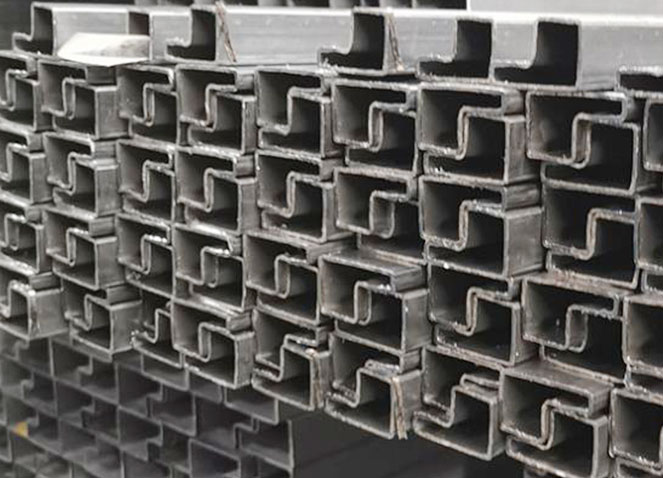
Irregular steel pipe
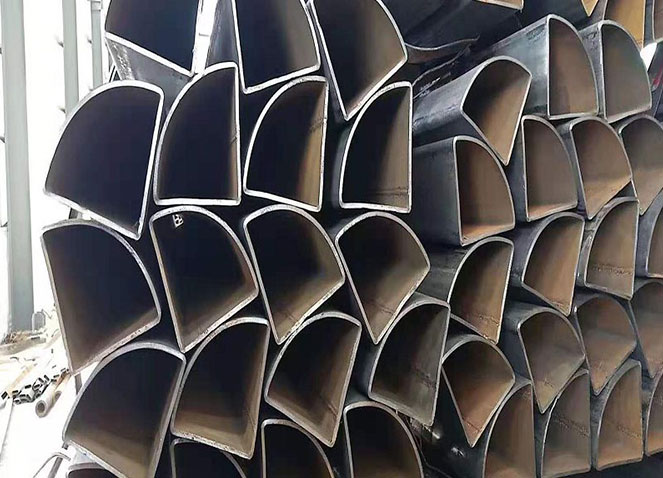
Straight seam welded pipe
Steel pipes are divided into equal-section steel pipes and variable-section steel pipes according to their longitudinal cross-section shapes.
Variable-section (or variable-section) steel pipes refer to steel pipes whose cross-section shapes, inner and outer diameters, and wall thicknesses change periodically or non-periodically along the length of the pipe. They mainly include: external tapered pipes, internal tapered pipes, external stepped pipes, internal stepped pipes, periodic cross-section pipes, corrugated pipes, spiral pipes, steel pipes with heat sinks, and gun barrels with double lines.
Use and application areas of steel pipe
The common uses of steel pipes are very wide and cover many fields.
Building structure
Steel pipes are used as building structural materials in high-rise buildings, large stadiums, bridges and other projects. For example, the supporting structure of the internal steel components of the China National Stadium “Bird’s Nest” uses a large number of steel pipes.
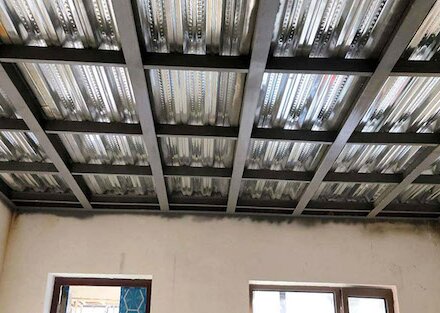
Square steel frame

Steel pipe crafts
Mechanical manufacturing
In mechanical manufacturing, steel pipes are mainly used to manufacture parts such as transmission shafts, impellers, brackets, etc. For example, industries such as automobiles, ships, locomotives, and power equipment all require steel pipes of various specifications.
Roads and bridges
On roads and bridges, steel pipes are mainly used to manufacture bridge supports, guardrails, steel pipe concrete piles and other components. It can withstand huge pressure and weight to ensure the safety of urban transportation.
Petroleum and petrochemicals
The petroleum and petrochemical industry is one of the important application areas of steel pipes. As pipelines for oil and gas transportation, steel pipes can withstand harsh conditions such as high temperature, high pressure, and corrosion, and have the advantages of safety, economy, and environmental protection.
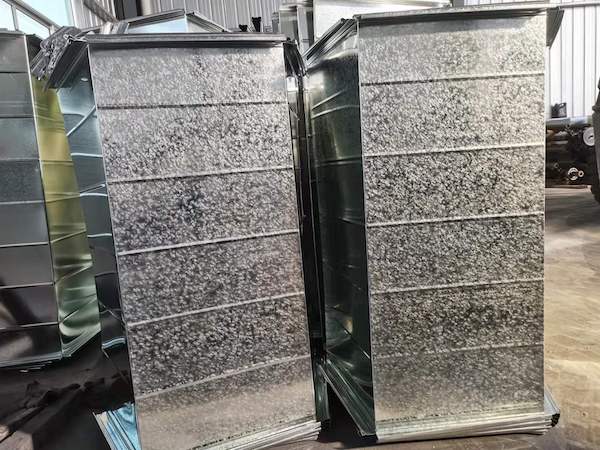
Ventilation duct
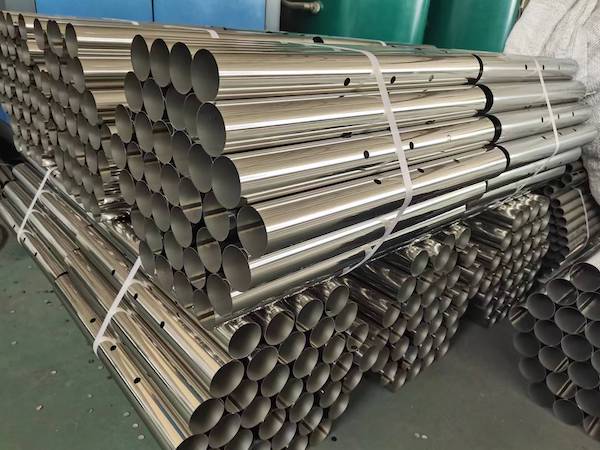
Perforated tube
Other fields
In addition, steel pipes are also widely used in building materials, logistics, furniture, decoration and other fields. They have the characteristics of strong structure, convenient transportation and simple installation.
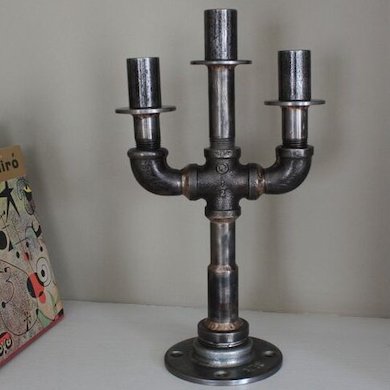
Welded tube lamp holder
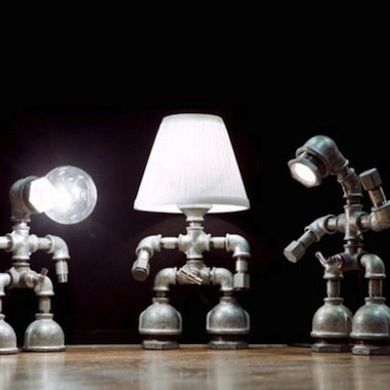
Steel tube art lamp
In short, steel pipes are a multifunctional and multi-purpose building material suitable for all walks of life. With the continuous development of science and technology in the future, its application field will continue to expand.
Steel Pipe Manufacturers and Suppliers
Wanzhi Company is a foreign trade supply chain company that has been developing for more than ten years. We have an excellent foreign trade sales service team that can solve the various problems you face in a timely manner and give you a full range of replies and services. In Shandong, China, we have our own factory and can provide you with high-quality steel products. Not only steel pipes, we also provide carbon steel, stainless steel, color-coated steel, corrugated steel plates and other products. Welcome to call us for consultation.
